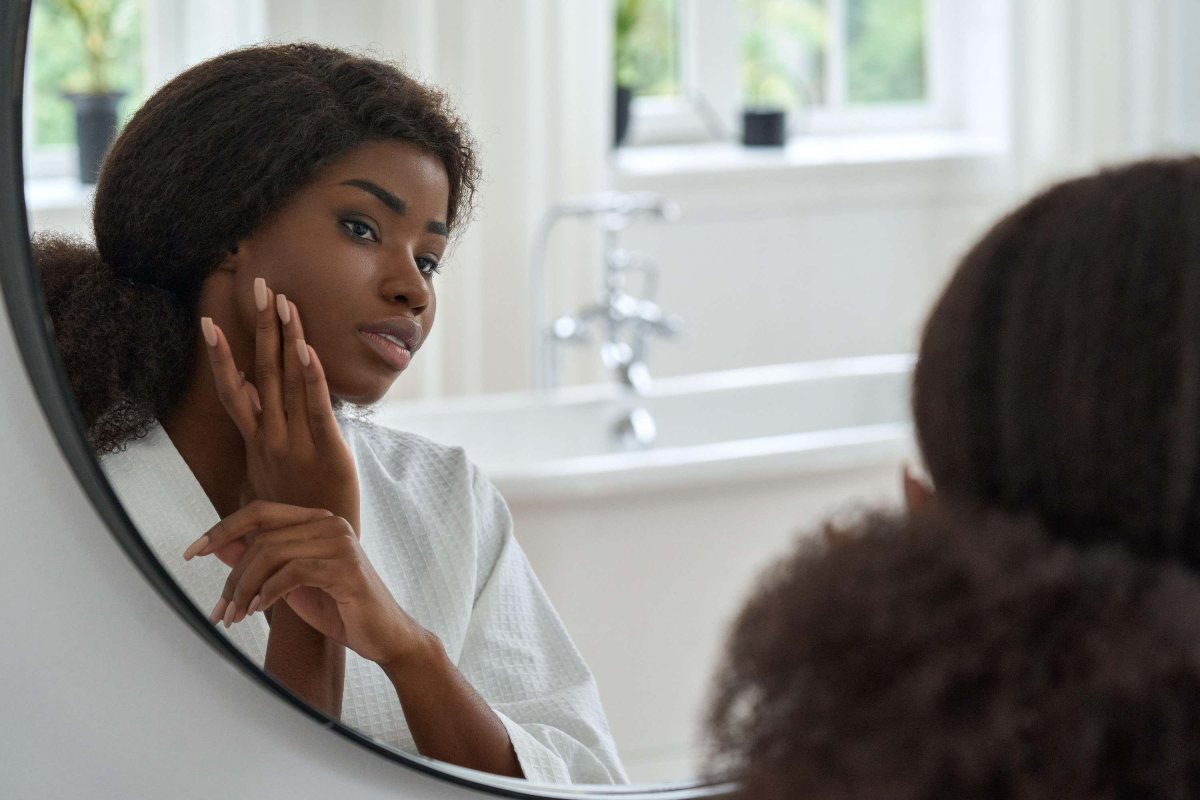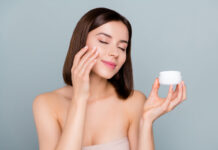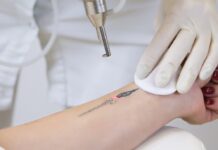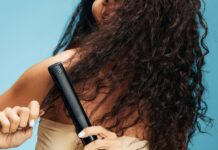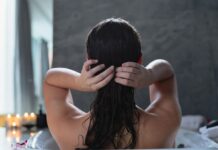Although things are slowly improving, black skin has historically been something of an afterthought in the beauty industry.
This is something aesthetician Dija Ayodele has spent her whole career battling, and now she’s written Black Skin: The Definitive Skincare Guide.
Even though there would have been a place for a book like this years ago, Ayodele admits: “I think the reception is better now. As a society as a whole, regardless of our nationalities and ethnicities, I think we’re much more accepting of the inequalities and imbalances there have been in the past, and we’re much more willing to work towards solving those inequalities.”
My book is SO beautiful. That’s it, that’s the tweet. #theblackskinbook pic.twitter.com/iCTUfjDE8r
— Dija Ayodele (@Dija_Ayodele) November 15, 2021
She credits the Black Lives Matter movement for helping move these conversations forward, saying: “Now is the right time [for this book] – if you don’t do things like this now, they’ll never get done.”
It’s an extensive handbook on everything you need to know about black skin, from potential issues to the best treatments – along with plenty of historical context explaining why black skin has been left out of the conversation for so long.
“For me, it was very important to place this context, because I also want the book to be an educational tool,” she explains, noting how black skin hasn’t historically been included in magazine spreads or beauty contests. “If black women don’t feature in them, then the unheard or unspoken assumption is that black women aren’t beautiful.”
Client asked me why I love my job. I don’t consider my work a ‘job’ because I’m having the time of my life – I help women develop better attitudes and habits towards their skin, I fill a reassuring gap for Black women, I’m walking in my purpose and I get paid for it. Bonus! ♥️
— Dija Ayodele (@Dija_Ayodele) July 4, 2021
A lack of information and education means myths around black skin have flourished. The worst one? “That black skin doesn’t need SPF,” Ayodele says with a groan – particularly as it’s prone to hyperpigmentation, and “by forgoing your SPF, you are fuelling that cycle of discoloration”, she adds.
Another major myth is black skin can’t use certain treatments – such as chemical peels or lasers – or ingredients like hydroquinone. “All of that is due to a lack of education,” Ayodele says. “The real truth of the matter is people should wear SPF, lasers are suitable for black skin (depending on which one you’re using), chemical peels are fine for black skin (depending on what you’re doing) and hydroquinone is also fine for black skin – if you’re using it under medical supervision.”
What do you look for in a sunscreen? I look for the following;-affordability– black skin friendly (no white cast)-broad spectrum-high protection -moisturising sunscreen
Sunscreen used: Derm Opal SPF 30 ❤️ pic.twitter.com/w9dhpfp0LF
— the skin girl (@zithobemacheli) February 26, 2021
The importance of improving knowledge around black skin can’t be understated. Ayodele draws the link between self-esteem and skin, saying she wants society to get to a place where happy skin is valued – rather than unrealistically flawless skin. “Because you have melanin, the door is always open for you to have blemishes on the skin – when you have an injury, cut, acne or eczema, melanin is going to flood that area and make the skin look discoloured,” she explains. “That’s the natural physiological make-up of black skin. So, happy skin is someone who accepts that’s how the skin works” – rather than chasing flawless skin through countless treatments and products.
The 4 products Ayodele says every black person should use
An AHA
“I like a mix of alpha-hydroxy acids (AHAs),” says Ayodele. “So, your glycolic, your lactic – to help give gentle exfoliation to the skin.”
Eucerin Hyaluron-Filler Night Peeling & Serum, Escentual
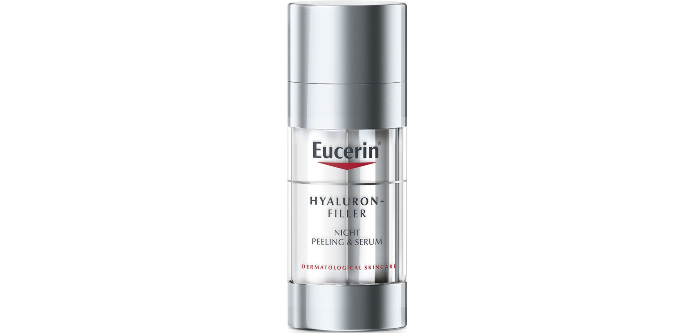
A pigmentation serum
“For darker skin tones, pigmentation serums are key, especially when we’re talking about fading hyperpigmentation,” Ayodele explains. “So, ingredient-wise, we’re talking about things like kojic acid, alpha arbutin, liquorice extract, some vitamin C, resorcinol – those are the ingredients we’re talking about that I absolutely – without missing a beat – will always include in a black woman’s routine – or a black man, for that matter.”
The Ordinary Alpha Arbutin 2% + HA
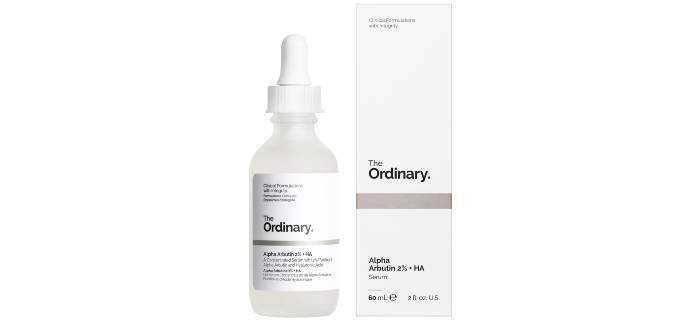
No products found.
An SPF
“I always include an SPF without fail, because I really want to stamp out the idea that black people don’t need SPF,” says Ayodele.
iS Clinical Extreme Protect SPF 40
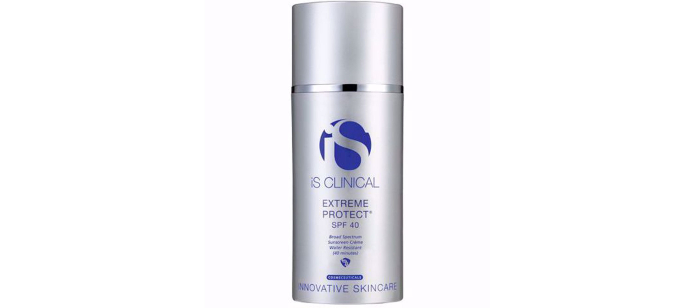
No products found.
A retinoid
Ayodele continues: “I will always include some sort of over-the-counter retinoid – either a retinol or retinal, for example, just as a means of improving skin cell turnover, pigmentation, the hydration of the skin, as well as stimulating collagen.”
Liz Earle Superskin Alt-Retinol
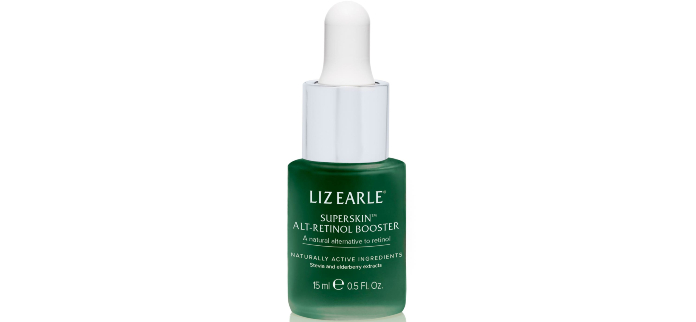
No products found.
Black Skin: The Definitive Skincare Guide.
No products found.
You may be interested in…
This article may include affiliate links to products and services where we may receive a small fee to support the running of this site if you make a purchase or is a sponsored article from one of our select editorial partners providing valuable advice and information to our readers.























































